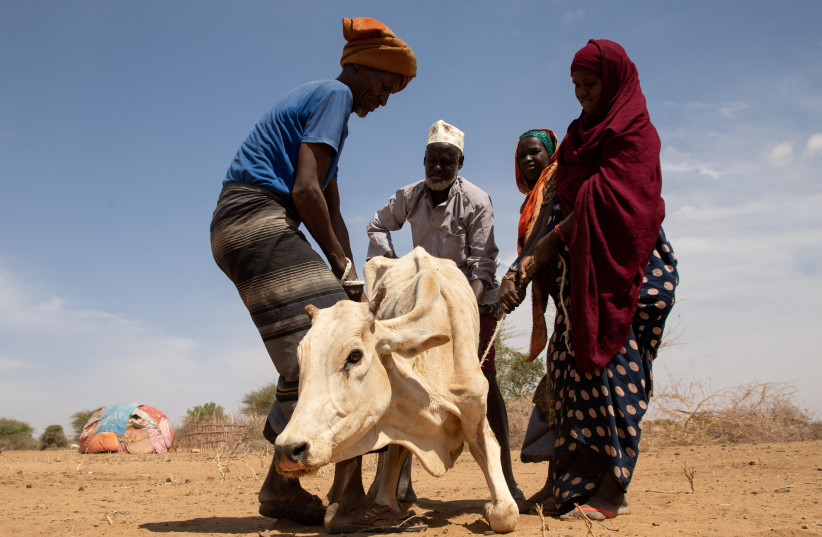The number of people struggling to get enough food in West and Central Africa is expected to rise to an all-time high of 48 million by mid-2023, the United Nations said on Friday.
About 35 million people - or about 8% of the assessed population - are suffering from "food insecrity" across the region, according to analysis by an alliance of UN agencies.
Many countries have been hit by a combination of conflict, climate change, and rising prices. Floods this year have been particularly bad in Chad and Nigeria.
The countries with the highest hunger levels are Mali, Burkina Faso and Nigeria, according to the World Food Programme (WFP). All three are battling Islamist insurgencies that have displaced millions of people.
In certain pockets, such as the department of Gorom-Gorom in northern Burkina Faso, 20% of the population is malnourished, the agency said.
Famine fueled by extreme weather

"A large part of the food insecure areas are places where the security situation has continued to worsen, particularly since last year, and this has had an impact on the functioning of the market, livelihoods and access to basic social services," Federico Doehnert, a regional adviser at WFP, said.
Across Africa, from east to west, people are experiencing a food crisis that is bigger and more complex than the continent has ever seen, say diplomats and humanitarian workers.
Conflict and climate change are the long-term causes, while heavy debt burdens following the COVID-19 pandemic, rising prices and war in Ukraine have exacerbated the situation, they said.
